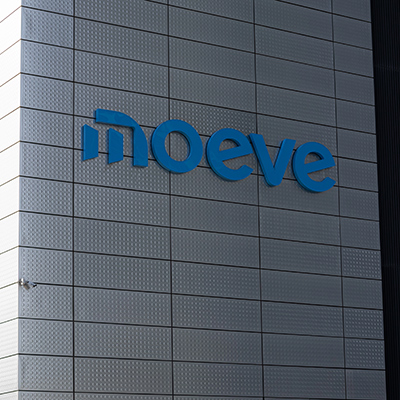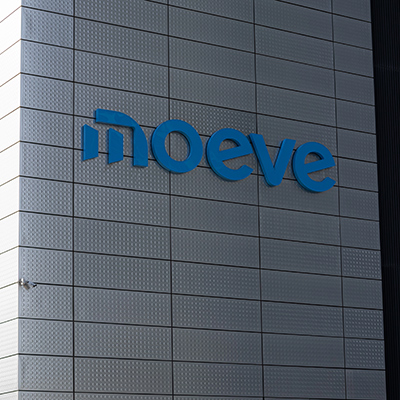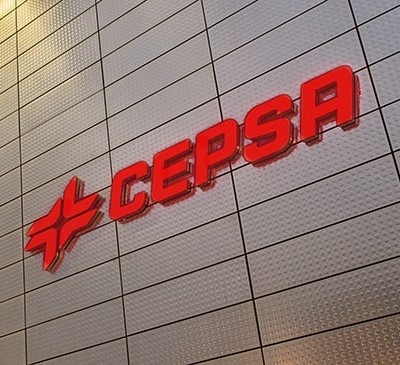- Clean CCS EBITDA was €1,165m in the nine months to September versus €2,492m in the same period last year, driven by lower Upstream volumes following the sale of the Group’s Abu Dhabi assets. Refining margins remained supportive
- Clean CCS Net Income reached €252m until September versus €534m in the same period in 2022, reflecting the sale of the Abu Dhabi assets
- Cash flow from operations, excluding non-recurring items, stood at €1,006m versus €979m in the first nine months of 2022
- Sustainable capex made up 40% of spending for the period, with total capex of €439m versus €357m in the same period of last year, as Cepsa continues to deliver on its Positive Motion strategy
- Cepsa contributed €3,358m in taxes in Spain, of which €2,046m were borne and €1,312 collected on behalf of the Spanish tax authorities. In September, Cepsa paid €158m corresponding to the second instalment of the windfall tax, which has implied a total payment of €323m this year
- Cepsa’s Net Debt was reduced to €2.5bn by September, with leverage ratio increasing to 1.7x driven by lower EBITDA following the Abu Dhabi assets sale. Liquidity increased to €4.2bn, implying a buffer of 4.4 years without refinancing risk
- Since July, Cepsa has taken great strides in offering sustainable solutions to its customers, launching the sale of sustainable aviation fuel (SAF) at four of Spain's main airports, beginning the sale of renewable diesel for professional customers, running successful 2G biofuels trials for passenger ferries and freight trains, and reaching an agreement to start developing biomethane production. It also received a €150 million loan from the EIB to foster electric mobility in Spain and Portugal
- Cepsa has reached an agreement to acquire Ballenoil’s service station network of more than 220 establishments in Spain, widening Cepsa’s network to around 2,000 service stations in the Iberian market and allowing the Company to create a low-cost, sustainable segment alongside its premium network of multi-energy and ultra-convenience stations
Maarten Wetselaar, Cepsa CEO
“We saw an improvement in our third quarter financial performance thanks to an increase in refining margins, though overall results for the first nine months of the year continue to reflect the impact of Spain’s poorly designed windfall tax regime as well as the volatile energy markets seen across Europe in the year to date.
At a time when the urgency of investing in low carbon energy solutions is increasingly evident, Cepsa remains committed and focused on its Positive Motion strategy to become leading providers of green hydrogen, 2G biofuels, and sustainable mobility, with sustainable capex making up 40% of spending this quarter.
We hope to work with the new Spanish government to ensure that Spain’s fiscal and regulatory frameworks support industry and create a competitive environment for the energy transition, fostering investment and enabling the development in Spain of Europe’s biggest green hydrogen project.”
Market Environment
Crude prices increased in Q3’23 to 86.8 $/bbl (78.4 $/bbl in Q2’23) due to the OPEC+ commitment announced in June to extend the cuts towards 2024 together with balanced world oil reserves.
Refining margins increased in the quarter, with Cepsa’s average margin at 14.4 $/bbl (7.4 $/bbl in Q2’23), mostly driven by enhanced performance of light and middle distillates. At this stage, Q4’23 refining margins are expected to fall closer to levels seen in Q2.
Gas prices stood at €33.0/MWh in Q3’23 (€35.1/MWh in Q2’23) as the demand and supply balance, which was disrupted following the Ukraine crisis, continued to normalise.
Spanish pool prices for electricity increased from the previous period, mainly as a result of the decline in wind production and greater demand, with an average of 96.5 €/MWh in Q3’23 (80.3 €/MWh in Q2’23).
Results Breakdown
Cepsa’s three main businesses had a strong performance during the third quarter of the year, on the back of a supportive market environment with higher crude prices and enhanced refining margins, above the historical average. Net debt reduced despite the impact of the extraordinary tax imposed on energy companies and sustained capex, as Cepsa continued to deliver its Positive Motion strategy, boosting sustainable projects to facilitate a successful energy transition in Europe. By division:
- Energy CCS EBITDA for the segment during Q3’23 stood at €335m (€114m in Q2’23), with Cepsa’s Energy Parks overperforming due to higher margins. Refining margins during Q3’23 averaged 14.4 $/bbl (7.4 $/bb in Q2’23) and Cepsa’s utilization rate grew to 94% vs 91% in Q2’23. Commercial sales also increased to 4.5mt in the quarter, above Q2’23, on the back of the summer season.
- Chemicals. Results slightly below Q2’23 driven by lower margins and volumes caused by the difficult situation of the European industry. CCS EBITDA of €52m (€60m in Q2’23).
- Upstream. Meaningful CCS EBITDA increase to €73m (€58m in Q2’23) on the back of higher Brent prices and sustained production, with volumes at 32.8 kbopd (32.4 kbopd in Q2’23). Cepsa’s Upstream asset base has very low breakeven prices and enhanced cash conversion after the Abu Dhabi divestment.
Since the start of the third quarter of 2023, Cepsa has continued to make significant progress towards delivering its Positive Motion strategy.
In the Biofuels business, Cepsa began selling SAF at four of Spain’s main airports (Madrid, Barcelona, Palma de Mallorca and Seville) to all customers who request it, becoming the first company to offer biofuel for aviation on a permanent basis at those airports, and reached an alliance with Air Europa to supply 14.4 tons of SAF to the airline for one year to cover the first monthly Madrid-Havana flight. It also ran successful trials of second-generation biofuels on passenger ferries and freight trains, supplied 2G biofuels in the Port of Barcelona, and this month started the supply of 100% renewable diesel (HVO) to professional customers.
Cepsa also started its activity in the development of biomethane production from agricultural and livestock wastes, reaching an agreement with Kira Ventures to develop up to 15 biomethane plants in Spain over this decade. Cepsa's objective in 2030 is to manage 4 TWh per year to decarbonize its industrial activity, replacing natural gas consumption with biomethane in its energy parks and chemical plants, in addition to a complementary vector to produce green hydrogen and employment in mobility.
In New Mobility, Cepsa and Endesa launched “Together in Every Charge,” a joint offer for all electric vehicle users that combines the two companies’ electric mobility advantages and charging networks to make them compatible with each other. Also, the EIB granted a €150 million loan to Cepsa to foster electric mobility in Spain and Portugal. The financing arrangement will allow more than 1,800 ultra-fast electric vehicle chargers to be rolled out across the Iberian Peninsula, supporting Cepsa’s Positive Motion strategy. Cepsa currently has more than 130 ultra-fast charging points at its service stations and is developing another 330, with a goal to reach more than 1,000 service stations across its network by 2030.
Among other developments, Cepsa has reached an agreement to acquire Ballenoil’s service station network, comprising more than 220 low-cost establishments in Spain. The agreement, which is pending regulatory approval, will widen Cepsa’s service station network to around 2,000 establishments and allow the Company to create a low-cost, sustainable segment alongside its premium network of multi-energy service stations with ultra-convenience food and shopping options.



